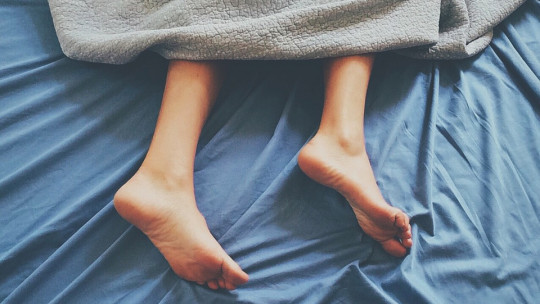
Just as there are people who can go from being a sweet little dove to an ogre when they haven’t eaten, the same can happen when they don’t sleep well, so stop underestimating it! Although it may not be immediately noticeable, the consequences of a poor sleep routine go far beyond the drastic transformation of mood. Its effects can be devastating to general health.
According to the World Association of Sleep Medicine (WASM), sleep disorders are considered to represent a global crisis that puts the health and well-being of more than 40% of people around the world at risk. If you are within that percentage, it is best that you continue reading.
Why is it so important to sleep well?
We want you to remember this forever: sleep is an investment in health and well-being. Science has shown that the recommended amount of sleep for adults can range between 7 and 8 hours per night. This amount allows you to complete a complete circadian cycle which is our internal clock that regulates the body’s biological rhythms, including sleep, wakefulness, body temperature, hormone release and metabolism.
During sleep, our brain is responsible for consolidating memory, processing emotions, releasing toxins and preparing the body for the next day. For this and more, adequate sleep allows us to make the most of the following hours, and also improves our physical and mental health. Below, we will mention some of the benefits of sleeping well:
Growth and repair hormones
Sleep stimulates the production of growth hormone, which is essential for tissue development and repair, especially in children and adolescents.
Improves decision making
A rested brain is able to analyze information, evaluate options and make better decisions. Lack of sleep, on the other hand, can lead to impulsivity already poor decision making.
Clear and creative thinking
Sleeping well improves concentration, attention and memory. A rested brain also promotes creativity which allows the generation of new ideas and solutions.
Cardiovascular health
Getting enough sleep reduces the risk of heart disease, stroke, and high blood pressure.
Strengthens the immune system
Good sleep helps strengthen the immune system, making us more resistant to infections and diseases.
Improves mood
Sleep well reduces stress and anxiety levels and improves general mood.
Better social relationships
Lack of sleep can negatively affect our mood and our ability to interact with others. Getting enough sleep makes us more patient, understanding and sociable.
As Dr. Merrill Mitler, a sleep expert and neuroscientist at the National Institutes of Health (NIH), points out, Sleep is essential to maintain all aspects of the body, from energy and molecular balance to intellectual function, alertness and mood. In short: sleep is life.
Effects of a poor sleep routine
Having constant sleeplessness or poor quality sleep directly impacts our circadian cycle, which is like the internal clock that controls our body. This interruption causes a series of negative reactions that worsen over time and generate a destructive cycle.
1. Constant exhaustion and poor performance
One of the first obvious signs of poor sleep quality is chronic fatigue. Lack of adequate rest leaves us exhausted during the day impairing our ability to concentrate, remember, and perform daily tasks.
2. Increased risk of disease
Studies have shown that lack of sleep is closely linked to an increased risk of developing chronic diseases such as diabetes, obesity, heart disease, hypertension and certain types of cancer.
3. Weakening of the immune system
Little and poor sleep weakens our immune system, making us more susceptible to infections and diseases.
4. Anxiety, depression and irritability
Lack of sleep can aggravate symptoms of anxiety and depression, as well as increase irritability and mood swings.
5. Premature aging
The skin loses elasticity and luminosity, dark circles and wrinkles appear, and in general, the appearance becomes more fatigued and aged.
6. Increased risk of accidents
Lack of sleep decreases the ability to concentrate, reflexes and reaction time. This, in turn, significantly increases the risk of being involved in traffic, work or even home accidents.
7. Decreased libido
In both men and women, lack of rest can have a negative impact on sexual desire and activity. For men, lack of sleep decreases levels of testosterone, a hormone essential for sexual desire; while in women it can hinder the production of estrogen and progesterone.
Keys to improve your sleep routine
Although sleep needs vary between people, on average an adult needs 7 to 8 hours of sleep per night. Babies usually sleep about 16 hours a day, toddlers need about 10 hours, and teenagers at least 9 hours.
Dr. Michael Twery, a specialist at the NIH, mentions that to obtain the maximum restorative benefits of sleep it is important to enjoy a full night of quality sleep. That’s why we will share with you some keys to get the most out of your night and thus leave that bad sleep routine behind.
1. Establish and respect a fixed sleep schedule
Go to bed and get up at the same time every day, including weekends. This will help regulate your biological clock and make it easier to fall asleep.
2. Minimize the use of electronic devices before bed
Avoid exposure to blue light emitted by screens such as televisions, mobile phones or computers at least an hour before bedtime, as it can alter the production of melatonin, the hormone responsible for sleep.
3. Exercise regularly
Daytime physical activity can promote a better night’s rest. However, It is important that you avoid exercising too close to bedtime as it could make it difficult for you to fall asleep.
4. Reduce consumption of caffeine, tea, alcohol or energy drinks
These substances can delay the arrival of Morpheus, especially if they are ingested shortly before bedtime.
5. Avoid long naps during the day or naps before dusk
If you need to rest during the day, we recommend that you take short naps of a maximum of 30 minutes and preferably before 3 pm. Long or late naps can interfere with falling asleep at night.
6. Avoid eating heavy meals before going to bed
Eating a large or spicy dinner close to bedtime can cause digestive upset that affects your sleep. Choose a light, healthy dinner at least two hours before bedtime.
7. Take time to relax
Do quiet activities like reading, taking a hot bath, meditating, or listening to soft music before going to bed. This will help you prepare your body and mind to rest better.
Do you need psychotherapy services for sleep problems?
If you notice that nothing works when trying to sleep better, contact our team of psychologists. At Psicotools we can help you.








